When building or remodeling your dream home, it is important to consider whether your house can withstand the weather conditions where you live. Homeowners will need to consider different types of materials that can withstand extremes, whether it’s scorching heat, freezing cold, heavy rain, or strong winds. There are a number of building materials that are weather resistant and can help protect your property in harsh weather, including brick, stone veneer, permeable pavers, porcelain slabs, flagstone, and retaining wall blocks.
Stone Veneer
Stone veneer is a popular choice for exterior facing due to its aesthetic appeal and durability. Natural stone and manufactured stone veneers are strong, weather-resistant, and can withstand temperature fluctuations. Manufactured stone mimics the appearance of natural stone but is made of concrete, aggregates, pigments, and other additives. Stone veneer can withstand the impact of fire, rain, wind, and other weather conditions and does not deteriorate easily making it long lasting and low maintenance. It is typically impermeable, leaving few open spaces for water to penetrate, making it resistant to water absorption and preventing issues like mold or mildew growth. Stone veneer keeps its integrity and has low crack and damage risk in weather fluctuations because it does not significantly expand or contract with temperature or moisture changes.
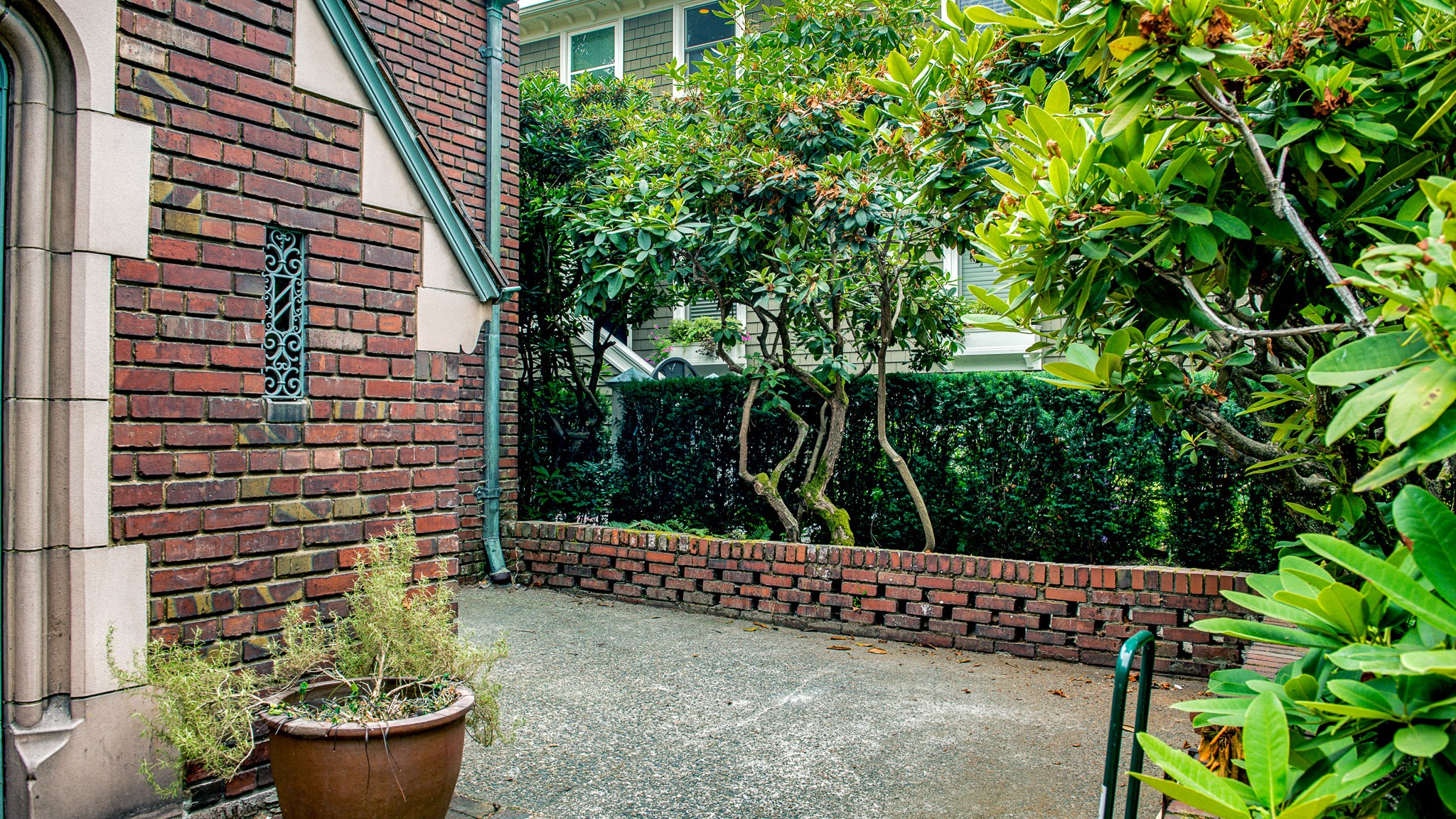
Brick
Brick is wind, fire, and water resistant, insect-proof, and sustainable, giving you functional benefits in addition to its timeless visual appeal. The clay used in brick production is fired at high temperatures, which makes the bricks dense and less porous, helping prevent water penetration, mold, and mildew. It can absorb and release moisture without compromising its structural integrity, helping regulate temperature and moisture levels. Brick has natural insulating properties, excellent thermal mass, and is durable. Not only does face brick make for a great veneer, but it can be used to create chimneys and fireplaces. Clay brick pavers are extremely durable and a great choice for driveways, pathways, and walkways in your outdoor living space. Bricks never lose their color, are low maintenance and have a long lifespan, requiring minimal maintenance to remain weather-resistant.
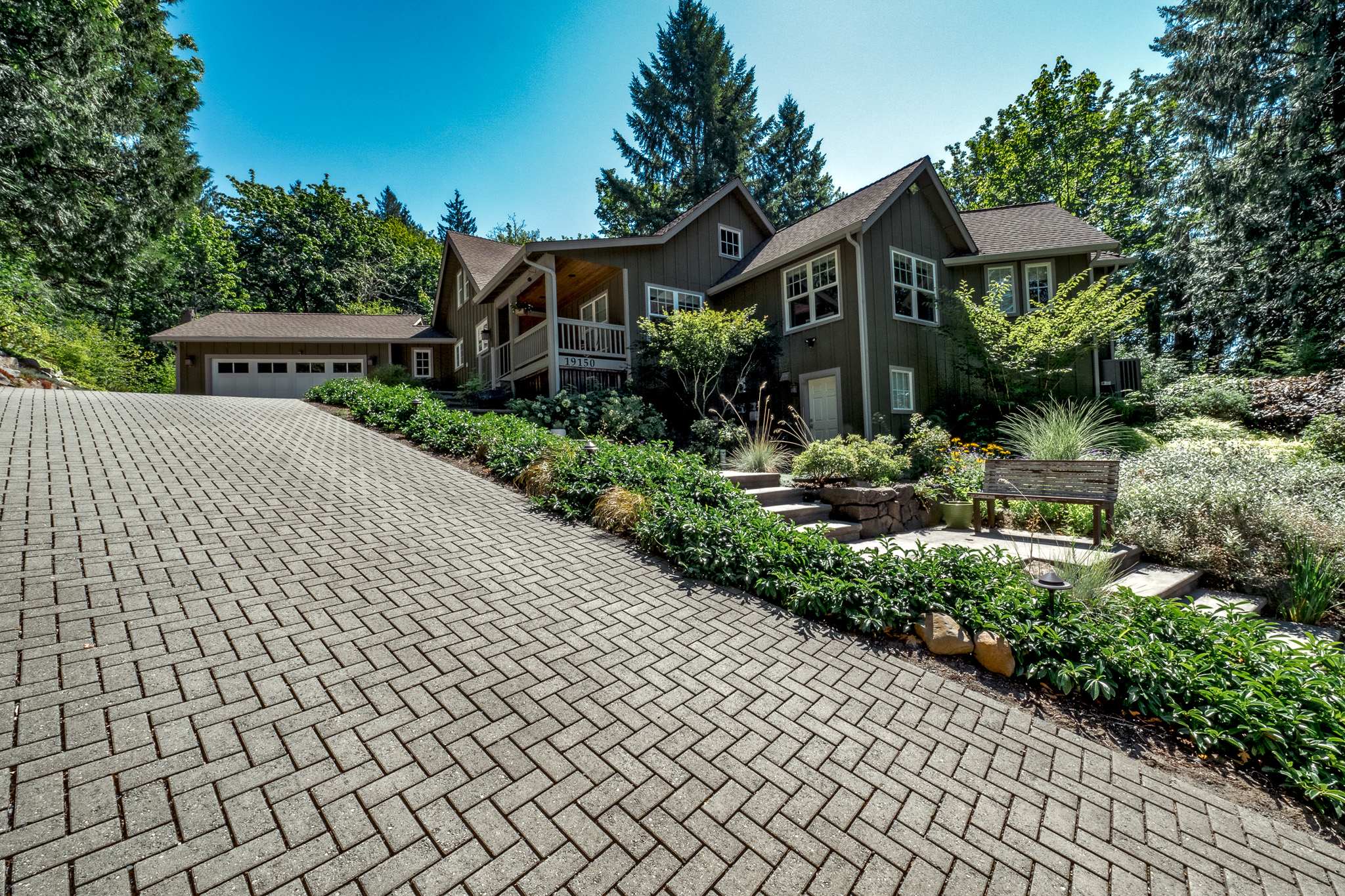
Permeable Pavers
Permeable pavers are designed to be porous, allowing water to pass through the surface and into the ground below. They help manage stormwater reducing the risk of soil erosion with the use of large voids between the units. Pavers can absorb and release heat, preventing the formation of ice during colder periods. They are a better choice than solid concrete since they have joints or gaps allowing for water filtration and drainage to the ground rather than creating water runoff or pooling. Most pavers are low maintenance and easy to replace if damaged or stained unlike poured concrete where damage will require replacing an entire area.
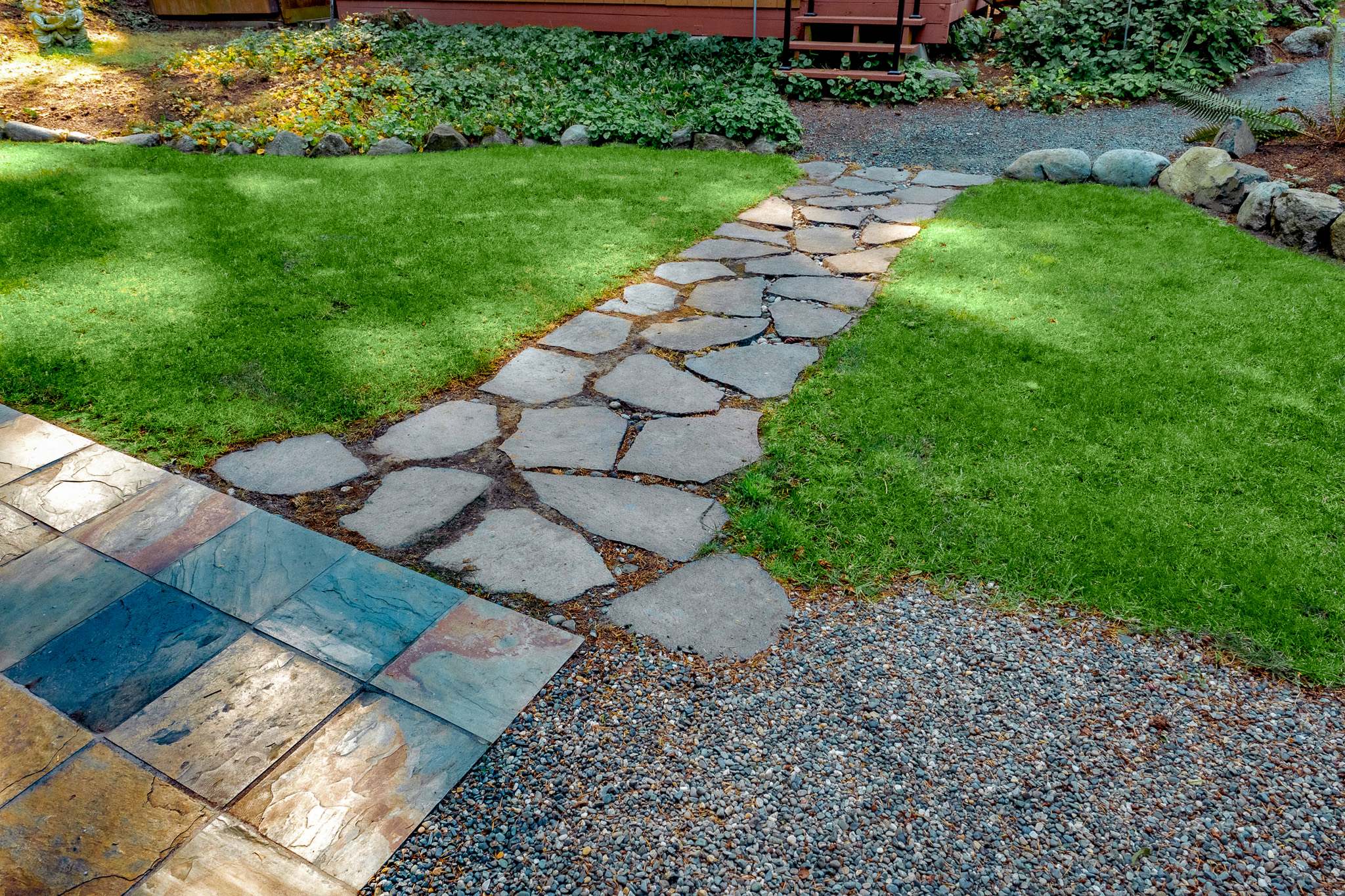
Architectural Slabs and Flagstone
Architectural slabs and porcelain pavers are slip and stain resistant making them good for areas with heavy foot traffic where rain and water may make it difficult to walk. They are low maintenance and provide a modern look to any setting. Flagstone is popular due to its durability, natural look, rich colors, and versatility in installation since it can be set in sand or mortar. It will not warp in the elements, is termite-proof, provides traction due to natural ridges, and limits water pooling on the surface.
Retaining Walls
Retaining wall blocks are typically made from concrete making them durable, resistant to wind, water, and fire, and able to withstand a variety of weather conditions. Whether you prefer a concrete or stone wall, retaining walls are great where extra support is needed, allowing for water drainage and stabilizing slopes. They provide structural stability to soil preventing it from moving downhill with erosion and causing damage to structures and landscaping. Homeowners can support the edges of a path or concrete driveway with a small retaining wall. Not only will it support the soil and material, it will also add an extra layer of beauty and curb appeal.
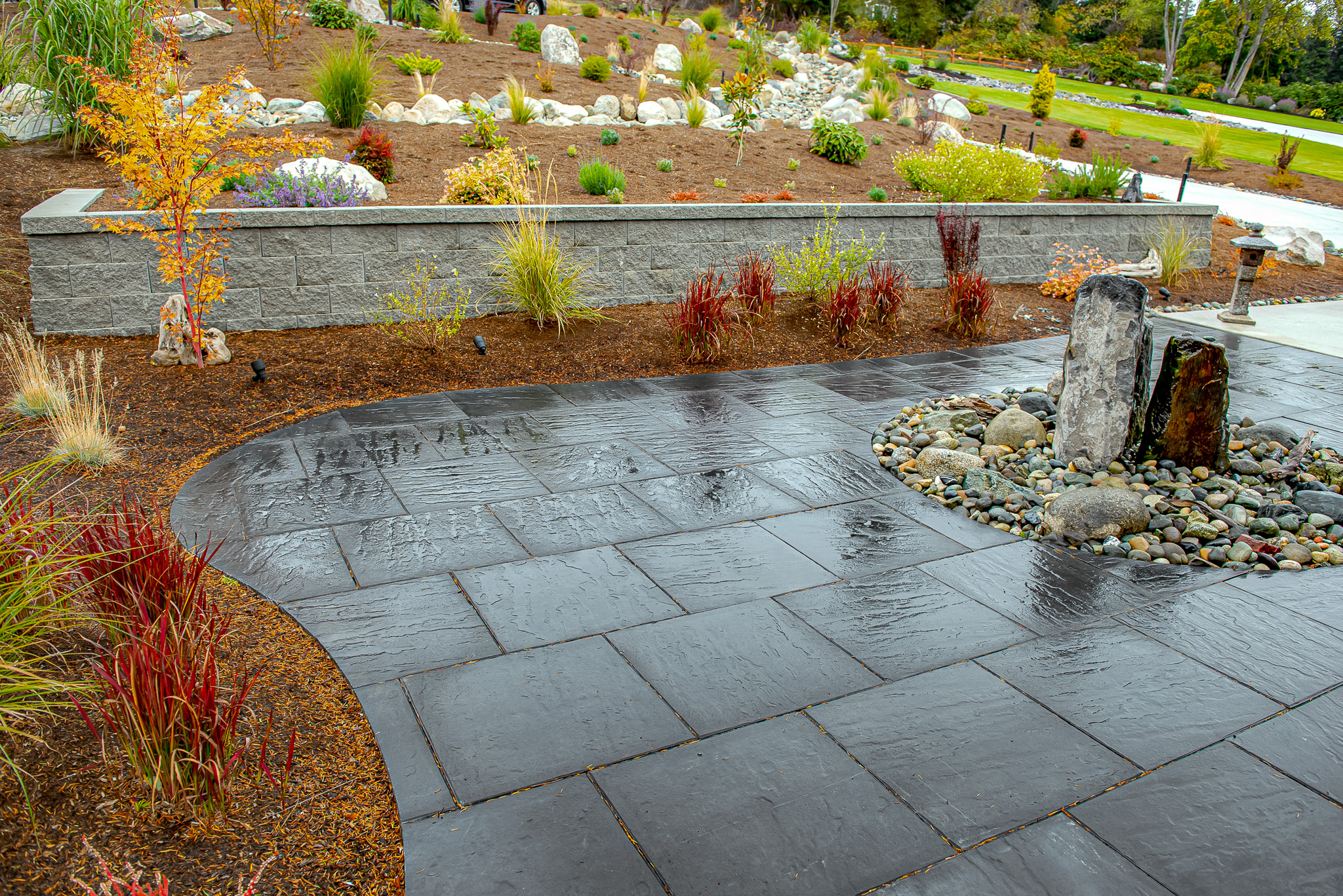
Cleaners, Sealers, and Adhesives
Provide an extra layer of protection with a sealer, whether you are installing or restoring a hardscape or masonry. Sealers help resist UV rays, fading, water penetration, staining, and deterioration. Cleaners can help dissolve the organic pollutants that cause discoloration from moss, mildew, grime, moisture, and prolonged water exposure. Keep your products colors looking beautiful long term and make it easier to clean and maintain. No matter the type of brick, with a tough cleaning solution, a high pressure washer, and a bristle brush, these DIY cleaning products can remove mortar stains in the mortar joints and surrounding areas. Follow up this treatment with brick sealers to minimize the ability of organic matter to grow in the crevices.
While stone sealer is an excellent product for preventing stains from various sources, they also have different uses. For example, some homeowners like the look of wet rock, which some sealants mimic. You can then occasionally follow up the treatment with a stone cleaner to keep the product looking fantastic. It maintains the treated stone’s appearance while also making another sealant application unnecessary. However, a natural stone sealer should be applied occasionally particularly when working with light-colored products such as travertine.
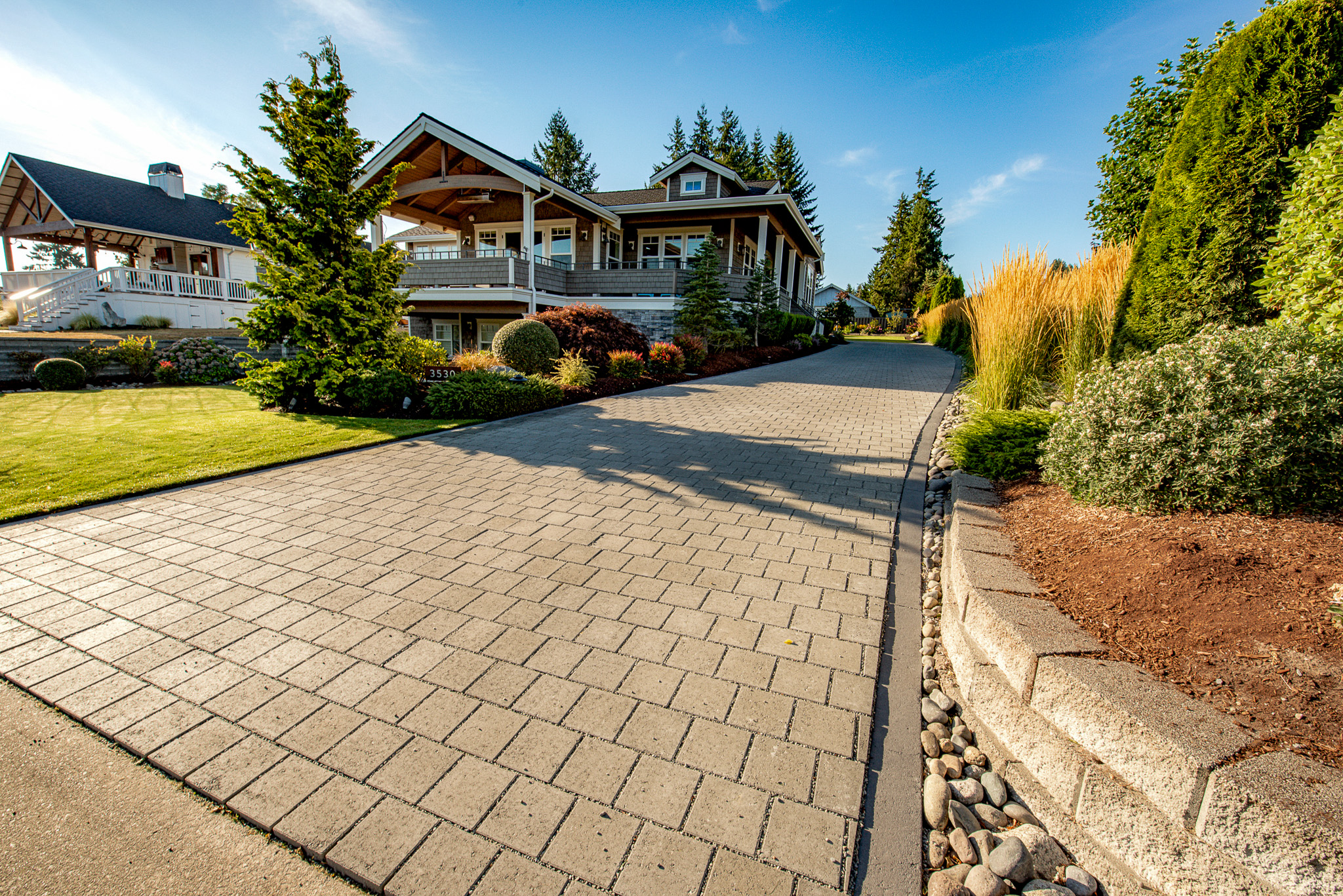
When focusing on home improvement for weather resistance and creating a home able to withstand all climates, it is important to consider a number of different products for your masonry, hardscape, and landscaping projects. Whether you are updating your entire home or just parts of it, the masonry, hardscape, and landscape design choices you make will impact how much future maintenance you will need to keep the structural integrity of your home. Mutual Materials can help you pick the correct products in a variety of colors that will not only increase aesthetic appeal but meet all your needs and design preferences!
Resources:
Consider Clay Brick For Inside and Out
Prepare Your Chimney for Winter
How are Clay Brick and Concrete Products Sustainable?
Best Building Materials to Withstand the Cold
Citations
- Mutual Materials – Hardscape Products
- Mutual Materials – Masonry Products
- Mutual Materials – Porcelain Pavers
- Surebond Cleaners & Sealers


